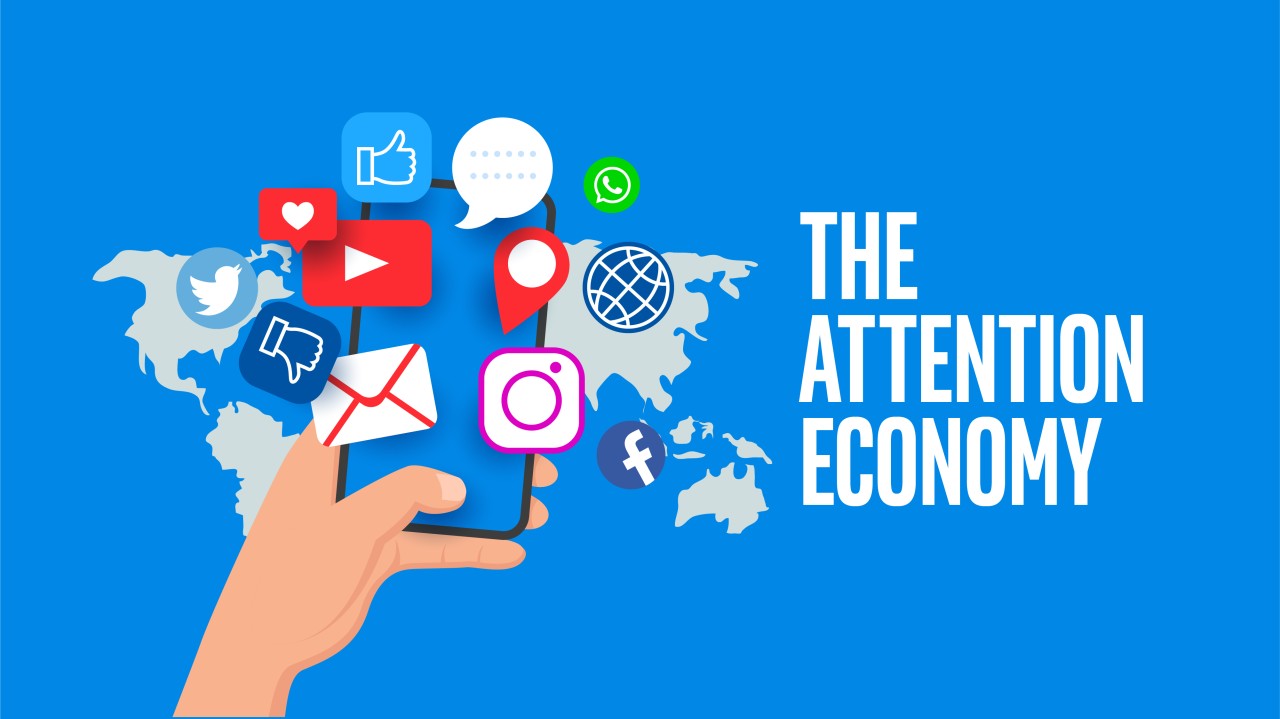Dopamine, The Sustentation Economy, and Its Real-World Consequences
In the digital age, the online sustentation economy is one where time, attention, and clicks are monetized. It is an intricate web that influences our lives in profound ways we don't plane notice. As users, we find ourselves constantly bombarded with information, notifications, and advertisements vying for our precious attention. Whoever wins the most sustentation wins all but with important caveats. This vendible delves deep into the dangerous real-world consequences of our engagement in the online sustentation economy and how it impacts various aspects of our lives.
The Online Sustentation Economy: A Digital Marketplace
In the popping landscape of the internet, sustentation has wilt a valuable currency. Social media platforms, websites, and businesses all compete fiercely for users' attention. The increasingly sustentation a piece of content garners, the higher its perceived value, leading to increased visibility and potential revenue for its creators.
In the sustentation economy, the competition revolves virtually the scarce resource of human attention. Unlike physical commodities, information is abundant, but capturing and retaining user sustentation wilt hair-trigger for survival. Social media and "free" apps resort to various tactics to secure user sustentation and data for ad revenue, instead of traditional monetary exchanges, they are social media assets.
Social media platforms create a game-like environment where users constantly seek validation through likes and followers, and this "game" blurs the lines between online interactions and real life. Many symbol the phenomenon's beginnings to YouTube.
The Psychological Impact on Users
Our brains are not immune to the voodoo of the online sustentation economy. The unvarying need to trammels notifications, scroll through news feeds, and engage with content triggers dopamine responses, creating a loop of haunting behavior. This miracle is known as "dopamine-driven feedback loops," which can lead to addiction-like patterns in our digital interactions. Followers, likes or interactions are really monetizable assets.
Metrics on social media platforms have real economic value, and brands and individuals can monetize their pursuit by promoting sponsored content and gaining sustentation for their posts. The use of moral outrage and emotionally charged content increases the virality and financial value of posts, leading brands and influencers to leverage moral themes for marketing purposes. Here is the sustentation microeconomy in a diagram.
The result of interacting in a game on competition is that the unvarying mart with online audiences reinforces unrepealable behaviors, influencing individuals' self-perception and policies as they internalize what is considered "good" or socially winning on social media. If the behaviors are rewarded, they are reinforced and wilt part of conscious reality when really they are just short term impressions and pleasant neurotransmissions.
The Social Ramifications
Social media has created a game-like environment where users are constantly engaged through their smartphones, making it challenging to disconnect from the platform. The goal of social media designers is to maximize user time on the platform, turning it into an zippy competition that merges with real life.
The habituated sustentation to metrics keeps users immersed in digital spaces, leading to the colonization of our world and our worldviews by the game mechanics of social media. These mechanics are inherently damaging.
The online sustentation economy can significantly impact our social lives and relationships. Excessive reliance on social media platforms can lead to a sense of social validation tied to likes and comments, causing users to prioritize online connections over real-life interactions. This can result in feelings of loneliness, anxiety, and depression.
Audience Capture in the Sustentation Economy
"Audience capture" refers to the miracle of bilateral influence between content creators and their audience. It can be positive, motivating creators to produce increasingly engaging content based on regulars feedback.
However, there is a visionless side to regulars capture, as illustrated by the story of Nicholas Perry, a YouTuber who shifted his content to lattermost supplies consumption due to taxing regulars requests. This pursuit of lattermost content had negative consequences on his health and identity.
The former vegan teen gradually began doing increasingly outrageous things and although he conglomerate millions of followers and billions of views his personality reverted as he ballooned to over 400 pounds eating whatever his regulars requested. The price this influencer paid is apparent. However, this doesn't midpoint we are self-ruling from the same impulses and compulsions that sooner led him from stuff a disciplined eater to having a total lack of reasonable dietary habits.
The unvarying lure of social media is happening to us all. It may not be as visible as with Nick Perry. The changes may manifest in ways far increasingly rabble-rousing for our well-being than physical causes. This is how feedback loops work and why gambling, porn, and social media rationalization social and occupational problems for so many. I have some value of withholding well-nigh how upper my consumption is and that's a sign I need to cut back. As soon as the phone withdrawal reaches panic levels when it's not around, it is time to take when control. Here are some useful tips for taking control of your mind.
The Economic Implications
For businesses and content creators, success in the online sustentation economy translates to increased trademark sensation and potential revenue streams. However, the flip side is that smaller businesses and lesser-known creators may struggle to proceeds traction, leading to economic disparities and concentration of power in the hands of a few dominant and powerful players. Social media companies are unceasingly capitalizing on the psychology of the unstipulated population, whether you are enlightened of it or not.
They are dismantling the very fabric of societal dynamics and human interactions. While we might perceive social media as a tool that brings people together, it is unquestionably a result of the intentional narrative these companies want us to believe.
The Impact on Information Consumption
In an attention-scarce environment, sensationalist and clickbait content often take part-way stage. Quality journalism and thoughtful wringer may get overshadowed, leading to the spread of misinformation and the rise of "fake news." This can have severe consequences on public opinion and decision-making processes. It's no longer a game of trying to go viral, but a lifestyle of constantly competing for sustentation that can swallow one's mental well-being utterly. We can't be happy living lives others want us to lead but we can very hands get unprotected in the sustentation trundling and not notice how far we drifted.
Addressing the Real-World Consequences
As responsible netizens, it is crucial to recognize the implications of our online behaviors and take steps to mitigate the negative effects of the sustentation economy. Here are some measures that can help:
- Digital Detox: Taking regular breaks from social media and technology to do things in the real world can help unravel the dopamine-driven feedback loops and restore a healthier relationship with digital platforms.
- Critical Thinking: Developing strong hair-trigger thinking skills can empower individuals to identify misinformation and make informed decisions.
- Promoting Quality Content: As consumers, we can urgently support quality journalism and content creators by engaging with thought-provoking and insightful material.
- Digital Well-being Tools: Utilize the various digital well-being features provided by platforms to limit screen time and tenancy notifications and alerts.
The Road Ahead
Navigating the online sustentation economy will remain a challenge, but sensation and conscious efforts can make a significant difference. By striking a wastefulness between our digital and real lives, we can reuse tenancy over our sustentation and mitigate the wrongheaded real-world consequences of the sustentation economy.







